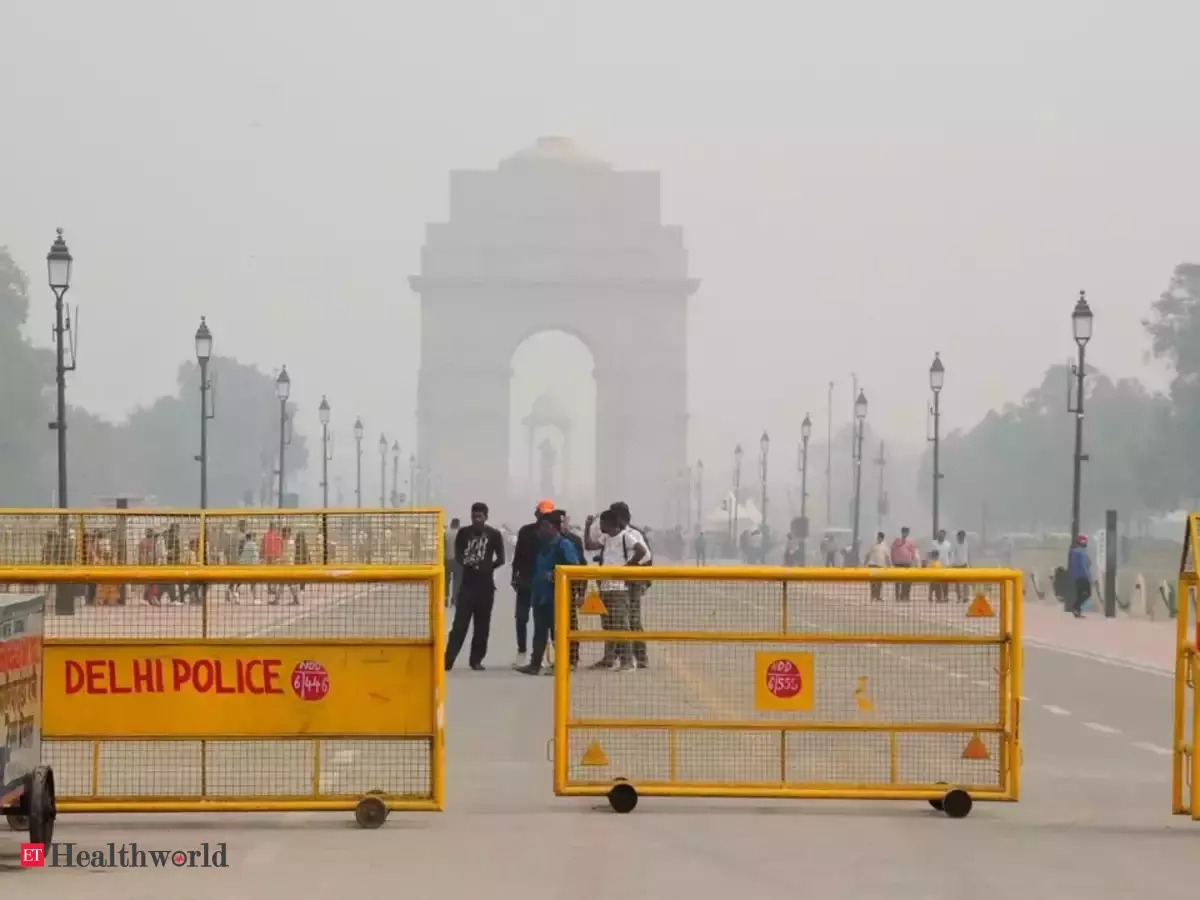Hospitals in Delhi are fast-filling as patients with breathing problems increase
Every day 2-3 patients are coming for treatment in the outpatient department Delhi - The impact of deteriorating air quality in the national capital is now visible in the outpatient departments of hospitals in the city. Cases

Every day 2-3 patients are coming for treatment in the outpatient department
Delhi – The impact of deteriorating air quality in the national capital is now visible in the outpatient departments of hospitals in the city. Cases of pollution-related ailments have spiked in the past few weeks, health experts said.
Each year, as winter draws near, the air quality in Delhi deteriorates and reaches unsafe levels. The smoke from stubble fires in the neighbouring states of Punjab and Haryana, the emissions from Diwali firecrackers, and Delhi’s local pollution sources are all made worse by cooler temperatures and calm winds that keep the toxins from spreading.
‘‘Although the post-Diwali time in the city this year was relatively clean, the air quality in recent days has reached dangerous levels. According to experts, hospitals’ outpatient departments are already feeling the effects. Exposure to high pollution levels worsens existing respiratory illnesses and contributes to new cases of respiratory problems increasing every year exponentially, during October and November. There are a large number of patients returning with intractable cough, shortness of breath and poor energy levels without any fever or other evidence of infection, and their numbers have been mounting’’, said Dr Tribhuvan Gulati, Expert Diabetes, Thyroid, Metabolic Disorders Apollo Spectra Hospital, Delhi.
With longer exposure to polluted air, Delhi people are not only facing respiratory problems but also triggers heart and neurological problems such as cardiac arrests, strokes and gastric distress.
Delhi’s total Air Quality Index (AQI) is recorded to be 354. Noida, a city in the national capital area, decreased to an AQI of 406 and remained in the “severe” category, while Gurugram’s AQI remained at 346 and was classified as “extremely bad.” When the Air Quality Index is between 0 and 100, it is good; when it is between 100 and 200, it is moderate; when it is between 200 and 300, it is poor; when it is between 300 and 400, it is very poor; and when it is between 400 and 500 or higher, it is severe.
Today, even those who have never had a respiratory disease before present with a strong, uncontrollable cough and difficulty breathing.
According to Dr Gulati, ‘‘There has been a significant increase in instances of asthma and chronic obstructive pulmonary disease (COPD), a chronic inflammatory lung disease that obstructs airflow. Additionally, he saw a surge in the patient footfalls as he consults almost 2-3 patients with complaints of cough and breathing problems. He suggested that patients take precautions like remaining indoors as much as possible, use air purifiers, get steam inhalation once or twice a day and move outdoors only when absolutely necessary using a face mask.






